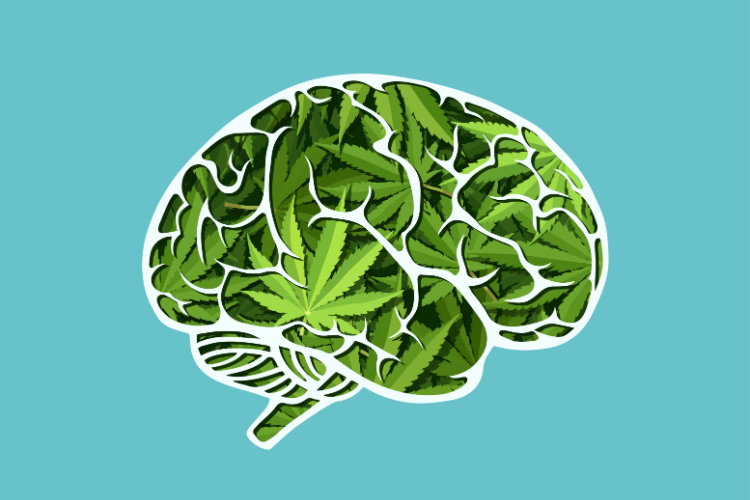June is Brain Awareness Month, the perfect time to reflect on this most special and captivating organ. And for those of us who grew up in the days when government PSAs warned young people about the dangers of marijuana, the question “how does marijuana affect your brain?” has special resonance.
That’s why recent findings of the cannabis plant’s potential benefits for those at risk of neurodegenerative diseases are so thrilling. Because as a growing number of studies suggest, cannabis may actually hold potential for conditions such as Parkinson’s, Alzheimer’s, and similar disorders.
How Does Marijuana Affect Your Brain? Some Surprising Findings
When we’re in good health, neurological disorders such as Alzheimer’s and Parkinson’s diseases are conditions we’d probably prefer not to think about. While they’re two separate and distinct conditions, there’s evidence they may share common roots and traits.

In essence, both are characterized by a loss of neural function. Parkinson’s is a motor system disorder that causes people to lose control of their physical movements. After Alzheimer’s it’s the second most prevalent neurological disorder in the United States, with some 60,000 new diagnoses each year. That said, because there’s no definitive test, the real number may be even higher.
Alzheimer’s is a neurodegenerative disease characterized by irreversible damage to the specialized brain cells known as neurons. Though genetics and environmental factors such as traumatic brain injuries play a role, the greatest risk factor is age.
Where does cannabis enter the picture? There’s evidence that our bodies try to combat these debilitating diseases by increasing the levels of certain endocannabinoids. Endocannabinoids, you may remember, are cannabinoids produced by our bodies, as opposed to the ones like THC and CBD produced by the cannabis plant.
Are THC and CBD neuroprotective? There’s a growing body of evidence that supports they are. One study from 2021 found that CBD improved some memory function in test subjects; another from 2013 found that low doses of THC helped to prevent brain damage in cases involving bodily trauma. Interestingly, that study referenced an earlier one that tested out using very high doses of THC in a short window before or after an injury. By comparison, the 2013 study used extremely low doses—described as “1,000 to 10,000 times less than that in a conventional marijuana cigarette”—and could be administered in a far wider time window.
At present, there’s no cure for Alzheimer’s or Parkinson’s. But cannabis is already being used to offset some of their symptoms. An Israeli study published in 2016 found that THC helped reduce delusions, agitation, aggression, and other symptoms associated with dementia.
How does it work? Some theorize the answer may lie in the cannabinoid’s anti-inflammatory properties. Diseases like Parkinson’s are associated with inflammatory responses in the brain, and may be triggered by inflammatory stimuli. Elsewhere, a 2014 study from the Journal of Alzheimer’s Disease found that THC reduced the build-up of amyloid plaque, a disruptor of nerve cells in the brain. Since then, other studies have backed up these findings.

Does CBD Affect Memory?
We’ve mainly focused on THC thus far, but that’s not to suggest CBD isn’t playing a role. In fact, there’s evidence that the “second cannabinoid” may have more to do with supporting brain health.
CBD’s potential has been examined in several studies, such as this one from 2020, which found CBD exerts neuroprotective effects for memory function in the brain. Along with evidence that CBD promotes greater wakefulness, there are plenty of indications that responsible cannabis use and healthy brain function go hand in hand.
Cannabis and Brain Health: Final Thoughts
Do you have any other questions about the effects of marijuana on the brain or Brain Awareness Month? Just reach out! We’re always happy to help. You can also stop by our Los Angeles dispensary or pursue our online menu. We look forward to seeing you!




